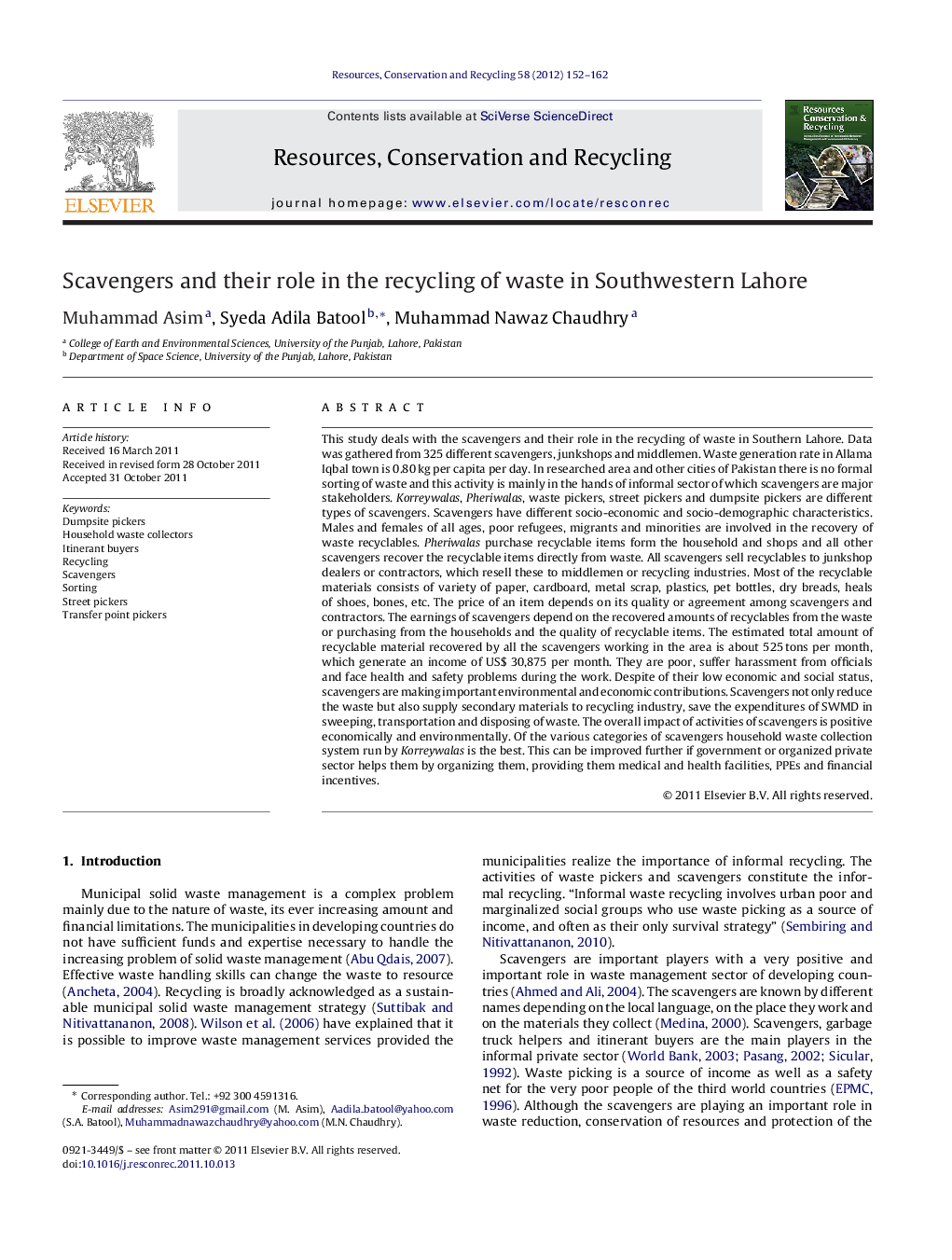| کد مقاله | کد نشریه | سال انتشار | مقاله انگلیسی | نسخه تمام متن |
|---|---|---|---|---|
| 1063489 | 1485731 | 2012 | 11 صفحه PDF | دانلود رایگان |

This study deals with the scavengers and their role in the recycling of waste in Southern Lahore. Data was gathered from 325 different scavengers, junkshops and middlemen. Waste generation rate in Allama Iqbal town is 0.80 kg per capita per day. In researched area and other cities of Pakistan there is no formal sorting of waste and this activity is mainly in the hands of informal sector of which scavengers are major stakeholders. Korreywalas, Pheriwalas, waste pickers, street pickers and dumpsite pickers are different types of scavengers. Scavengers have different socio-economic and socio-demographic characteristics. Males and females of all ages, poor refugees, migrants and minorities are involved in the recovery of waste recyclables. Pheriwalas purchase recyclable items form the household and shops and all other scavengers recover the recyclable items directly from waste. All scavengers sell recyclables to junkshop dealers or contractors, which resell these to middlemen or recycling industries. Most of the recyclable materials consists of variety of paper, cardboard, metal scrap, plastics, pet bottles, dry breads, heals of shoes, bones, etc. The price of an item depends on its quality or agreement among scavengers and contractors. The earnings of scavengers depend on the recovered amounts of recyclables from the waste or purchasing from the households and the quality of recyclable items. The estimated total amount of recyclable material recovered by all the scavengers working in the area is about 525 tons per month, which generate an income of US$ 30,875 per month. They are poor, suffer harassment from officials and face health and safety problems during the work. Despite of their low economic and social status, scavengers are making important environmental and economic contributions. Scavengers not only reduce the waste but also supply secondary materials to recycling industry, save the expenditures of SWMD in sweeping, transportation and disposing of waste. The overall impact of activities of scavengers is positive economically and environmentally. Of the various categories of scavengers household waste collection system run by Korreywalas is the best. This can be improved further if government or organized private sector helps them by organizing them, providing them medical and health facilities, PPEs and financial incentives.
Journal: Resources, Conservation and Recycling - Volume 58, January 2012, Pages 152–162